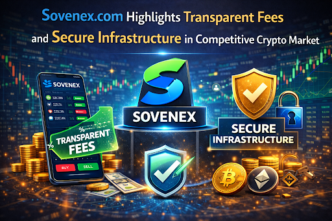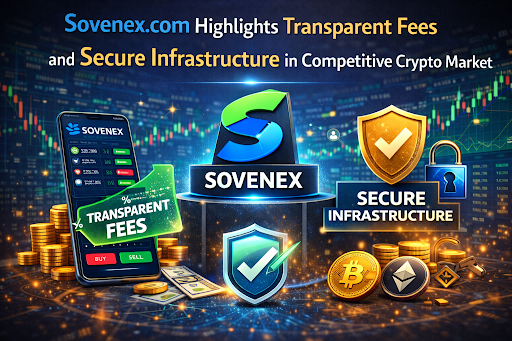1. IBM
IBM has been part of the tech world for more than a century, and if anyone is betting big on quantum, it’s them. IBM stands out by not only building quantum computers, but by making them actually accessible to researchers, businesses, and anyone curious about this cutting-edge technology. Their cloud-based services, like IBM Quantum Composer, let people run quantum experiments remotely. That’s something that would’ve been science fiction a decade ago.
Here are some things that really set IBM apart in the quantum field:
- They use superconducting qubits in their hardware, which has become a standard for reliable quantum processing.
- Their Quantum Computation Center in New York runs the world’s broadest fleet of quantum systems, including processors like the 433-qubit Osprey and the 1,121-qubit Condor.
- IBM’s full suite of quantum tools is open-source, so anyone can start experimenting right away without jumping through hoops.
For those keeping an eye on milestones, IBM’s long-term roadmap reaches into the early 2030s, with big goals around scaling up fault-tolerant, modular systems. In 2024, they even opened a European Quantum Data Center in Germany, spreading their resources across continents. For folks hungry for the latest updates and announcements, you might want to check out the latest in tech news and innovations.
All signs say IBM isn’t just playing catch-up with the rest of the market—they’re pushing it forward, one qubit at a time.
2. Alphabet

Alphabet, the parent company of Google, has been doing a lot in quantum computing for years. They don’t really brag—they just keep showing up with results. Back in 2019, Google first announced its work on quantum supremacy, and since then they’ve been pushing to make quantum computers useful for real problems, not just academic ones.
Alphabet’s approach to quantum computing focuses on building error-corrected, scalable systems. Quantum error correction is basically the name of the game—without it, none of these machines will ever be trustworthy enough for actual business or science. Their team, called Google Quantum AI, is always chasing better qubits, and they’re not shy about saying it’s going to take a long time. Still, every year, they make progress.
A few things that make Alphabet stand out:
- They’re working on superconducting qubits, which are one of the most promising ways to make a useful quantum computer.
- Google’s open-source project, Cirq, helps researchers and students get their hands dirty with quantum code.
- They’ve got a history of making their research available to other groups, pushing the whole field forward faster.
If you’re interested in which countries are leading technological progress and why tech giants like Alphabet thrive, you can check out a detailed list of technology-driven countries in this overview.
Here’s a quick table showing some relevant numbers as of 2025:
| Milestone | Date | Details |
|---|---|---|
| Quantum Supremacy Claimed | 2019 | Random circuit sampling |
| Scalable Error Correction Demo | 2023 | Logical qubit reliability improved |
| Qubit Count (Experimental) | 70+ | Not yet publicly commercial |
There’s no actual Alphabet-branded hardware for sale (yet), but Google lets others access some quantum processors through the cloud for experiments. Most experts agree: if anybody’s going to make a useful quantum computer in the next decade, Alphabet is definitely a company to watch closely.
3. IonQ
IonQ has made a real name for itself in the quantum computing space since its founding in 2015, and these past couple of years have been especially busy. IonQ stands out as one of the few public companies focused purely on quantum tech, and it’s got quantifiable momentum to show for it.
If you’re looking at the numbers, IonQ reported $52 million in revenue over the last 12 months, which is more than double what any of its closest pure-play competitors brought in. The company’s revenue even jumped 82% year over year—a tough feat in such a specialized field. Their stock price has been volatile (recently trading at about 319 times sales), but that reflects both expectations and the early-stage nature of the industry.
Here’s why IonQ keeps getting investor attention:
- Its technology is built around trapped ions, which can operate at room temperature and allow for powerful error correction.
- IonQ systems are available via the big cloud providers, including Amazon Braket, giving it broader accessibility.
- They have established partnerships with big names like Dell, Airbus, and several government agencies.
But what really takes things up a notch is IonQ’s recent run of acquisitions:
- Picked up Qubitekk in January 2025, strengthening its quantum networking capabilities.
- Acquired ID Quantique in February 2025, which improves IonQ’s position in quantum-safe cryptography.
- Closed the deal on Capella Space (July 2025), bringing satellite tech into the mix for quantum-secure satellite networks.
- In June 2025, announced a $1 billion acquisition of Oxford Ionics—this could help the company push beyond two million physical qubits by 2030, an enormous leap in scaling up quantum systems.
All this was fueled by an impressive financial cushion, as IonQ raised over $1.3 billion in 2025 alone, bringing its cash reserves to roughly $1.6 billion.
If you’re eyeing stocks with a direct shot at the next wave of quantum hardware and networking, IonQ has both the numbers and the roadmap—and right now, the war chest to keep building at speed.
4. D-Wave Quantum
D-Wave Quantum stands out because it was among the first companies to actually sell functional quantum computers—not just prototypes or academic proof-of-concepts, but machines that real-world companies use. D-Wave’s focus on quantum annealing has made it a go-to partner for organizations needing to solve big optimization problems—think things like scheduling, logistics, and complex simulations.
The company’s Leap cloud platform was expanded in 2024 and now offers real-time access to not only their quantum hardware, but also development kits and hybrid solvers, making it easier for different types of users to get started. In early 2025, they even rolled out a free LaunchPad program that gives startups and researchers no-cost access for three months.
Here are a few things that set D-Wave apart from the crowd:
- Their Advantage2 quantum computer, which launched in 2024, touts over 4,400 qubits—a massive leap compared to much of the industry.
- They’re not just about quantum annealing anymore; D-Wave’s also getting into gate-based quantum computing, which could broaden their reach down the road.
- Industry collaborations are front and center. They’ve worked with names in pharma, materials science, finance, and even government contracts.
Here’s a quick snapshot of their latest hardware:
| Processor | Qubit Count | Launch Year | Unique Feature |
|---|---|---|---|
| Advantage2 | 4,400+ | 2024 | 20-way connectivity |
While their stock (QBTS) gets a mix of ratings—some investors are cautious about the volatility—it remains a popular pick for those willing to ride out an emerging, high-risk sector. If you’re scouting for quantum plays with actual customer traction and products, D-Wave is one to watch closely.
5. Rigetti Computing

Rigetti Computing is steadily earning its spot as a standout in the quantum race, and not just because they’re one of the few public pure-play quantum companies. What sets Rigetti apart is its focus on superconducting qubit technology and making actual, usable quantum processors accessible over the cloud. Founded back in 2013 in Berkeley, Rigetti was one of the first to let people use real quantum hardware remotely, a move that kind of set them on the map.
Here’s a quick look at why Rigetti is no ordinary player:
- Their latest chip, the Ankaa-2, boasts 84 qubits and a new architecture—basically, it makes high-fidelity operations a lot more reliable, with median two-qubit gate fidelity hitting about 98%.
- Companies and researchers don’t need fancy infrastructure to use Rigetti’s gear; it’s all through Quantum Cloud Services, which hooks up with major platforms like Microsoft Azure and AWS Braket.
- Rigetti rolled out its first commercially available quantum processing unit (QPU), the Novera, in late 2023. The Novera comes with a 9-qubit chip for serious workloads and a simple 5-qubit chip for testing stuff out.
- By mid-2025, they’re expected to launch a 36-qubit modular system, scaling up again with a 100+ qubit setup not too long after.
For those tracking the business side, Rigetti’s client list is growing—about fourteen big enterprise customers, plus partnerships with over 100 organizations, universities, and government groups. Financially, things picked up in April 2025 when Quanta Computer invested $35 million, buying in at roughly $11.59 a share. That’s not pocket change.
Recent technical achievements are nothing to shrug at either. In October 2024, they nailed low-latency quantum error correction on their Ankaa-2 system with Riverlane. The fix: error decoding in less than a microsecond. That’s a step closer to making quantum machines a real-world tool, not just a science project. They also use something called Alternating-Bias Assisted Annealing to improve performance across their chips—fancy name, but it basically means better, more stable qubits.
Here’s a table breaking down some current and future hardware highlights:
| Processor | Qubits | Launch Date | Gate Fidelity | Notes |
|---|---|---|---|---|
| Novera | 9 | Q4 2023 | Not published | Commercial QPU + dev chip |
| Ankaa-2 | 84 | 2024 | 98% | 4th-gen, tunable couplers |
| Ankaa-3 | 100+ | Late 2025 | 99%+ (goal) | Modular architecture |
Rigetti’s still got hurdles (everyone in quantum does), but they’re finding ways to stick out. For companies looking to move real workloads to quantum in the future, Rigetti’s hands-on engineering and accessible cloud model make them one to watch as new advances keep coming. If you want to see how tech innovation is reshaping industries, even outside quantum, it’s kind of reminiscent of trends being highlighted by Padmasree Warrior at Cisco—adaptation and smart partnerships are how you keep up.
6. Quantum Computing Inc.
Quantum Computing Inc. (QCI) has been around since 2018, and they’ve carved out a spot for themselves by focusing on photonic quantum computing. Instead of making just one product, QCI aims to deliver full-stack solutions—everything from hardware to software designed for real business problems. Their big play in recent years was the acquisition of QPhoton in 2022, which gave them a boost in both quantum photonics tech and sensing abilities.
One thing that sets QCI apart is the Entropy Quantum Computing system (EQC). This platform uses light (photons) for computing, rather than relying on electrical or magnetic systems. That kind of tech means potentially quicker scaling and more stable calculations in just about any working environment. QCI also rolled out a Quantum Random Number Generator (QRNG) in 2023—first just as a cloud subscription, but later as an actual handheld gadget. If you need true randomness for encryption or cybersecurity, that’s pretty useful.
Here are a few ways QCI is making an impact:
- Focused solutions for tough optimization and security problems, especially in industries like finance and software.
- Moved quickly into quantum security with breakthrough random number generation.
- Keeps a pretty lean team (just a few dozen employees) but moves fast by buying up new tech and launching new platforms.
Right now, QCI remains a smaller player by staff and market cap, but their tech approach is getting a lot of attention. So if photonic quantum computing turns out to be the winning horse, these folks could jump ahead in 2025.
7. Microsoft
Microsoft has been making steady progress in quantum computing, mostly through its Azure Quantum platform—a cloud-based hub connecting users to a mix of quantum software and third-party hardware. The company’s main bet is on a unique approach called topological qubits, aiming for more stable and error-resistant systems. This isn’t just theory: in July 2025, Microsoft published fresh data on its "Majorana 1" chip, taking a first real step on its roadmap. They hit their "Milestone 1," though they’re still waiting on some big experimental results to confirm their qubits are basically working as advertised.
Microsoft’s quantum efforts didn’t spring up overnight; they’re built on early work by its QuArC group, along with tools like the Q# programming language and its Quantum Development Kit (QDK). The QDK being open source means anyone curious—or even adventurous—can tinker with quantum algorithms, helping the broader community poke at real-world uses. The Azure Quantum Resource Estimator lets developers see what kind of computing muscle their quantum ideas might need down the road.
Here’s what stands out about where Microsoft is headed:
- Azure Quantum keeps adding more partners, including hardware from Quantinuum and Atom Computing.
- In 2025, Microsoft and Quantinuum achieved reliable entanglement of 12 logical qubits, and Atom Computing is teaming up for a commercial system with 24 logical qubits.
- The company rolled out new AI-focused quantum chemistry tools and upgraded its cryptography libraries for the quantum age.
Though Microsoft consolidated its research hubs back in the US (even closing its Sydney facility in 2024), it’s still locking arms with major academic and industry players. Patience and bold bets seem to define their strategy, which is all about long-term gains, not flash-in-the-pan headlines. For investors, this means Microsoft could be a solid quantum play for 2025 if you want broad exposure to both classical and quantum cloud computing—while also benefiting from integrations that save startups time and headaches, similar to streamlined cloud-based tools used by thousands of companies. Microsoft’s approach may not be the fastest, but it’s definitely one to watch.
8. Amazon Web Services
Amazon Web Services (AWS) has moved way past just cloud computing—they’re investing hard in quantum technology. Amazon Braket, which kicked off in 2019, is AWS’s fully managed quantum computing service, letting folks run tests and build quantum algorithms on real hardware and simulators without much of the usual hassle. This year, AWS stepped up its game with Ocelot, its in-house quantum chip that’s supposed to make quantum research more practical and cut down on error correction a lot. That’s a big deal, even if quantum tech is just a small piece of Amazon’s overall monster operation.
Here’s a quick look at things AWS has going for quantum:
- Multiple hardware types accessible, including superconducting (Rigetti), trapped ion (IonQ), neutral atom, and photonic options.
- Pay-as-you-go pricing—handy for individuals or small teams.
- Easy integration with the broader AWS infrastructure, so you don’t need to set up everything from scratch.
- Supported by educational resources like Braket’s Digital Learning Plan and structured enterprise programs (like Quantum Embark) aimed at businesses wanting to experiment with quantum workloads.
- AWS released Ocelot, their proprietary quantum chip, in 2025. This chip uses 14 physical qubits (with error-mitigation features) and can run at room temperature, skipping a lot of the cooling headaches.
If you’re thinking about quantum stocks, it’s worth noting that Amazon’s stock price doesn’t move much just because of its quantum projects—AWS’s quantum efforts make up a small sliver. But these moves show Amazon isn’t just watching from the sidelines; they want to shape where quantum goes. For anyone interested in the future of quantum computing in the public market, AWS stays one to watch, even if the numbers don’t immediately show it yet.
9. BlueQubit
BlueQubit is one of the newer names in the field, but it’s already attracting attention for what it’s doing with quantum machine learning. Founded in 2022, the company has rolled out a software platform that lets users tap into both real quantum computers and powerful classical emulators—up to 34 simulated qubits, which is pretty significant for early-stage research. The thing that sets BlueQubit apart is how flexible it is: You can use familiar tools like Qiskit, Cirq, and NVIDIA’s compute resources together, making it easier to mix quantum and traditional methods.
BlueQubit’s main focus is on building a software ecosystem where companies can actually run useful quantum applications, not just run test code or theory. This makes it interesting for anyone serious about using quantum computers for tasks like AI and data analysis, even if today’s machines are still noisy and error-prone.
Some points that highlight BlueQubit’s approach:
- In 2023, BlueQubit was picked by DARPA for the IMPAQT project—so they’re recognized for their work in pushing quantum algorithms that are practical right now.
- The platform works smoothly with established frameworks, so developers don’t have to learn brand new languages from scratch.
- They’ve got their eye on making hybrid workflows a reality, where classical supercomputers and quantum processors can team up.
Here’s a quick summary of BlueQubit features:
| Feature | Description |
|---|---|
| Year Founded | 2022 |
| Quantum Emulation Capacity | 34 qubits (classical emulation) |
| Real Quantum Access | Yes |
| Software Compatibility | Qiskit, Cirq, NVIDIA Infrastructure |
| Focus Area | Quantum Machine Learning, Hybrid Computing |
| Notable Milestone | 2023: Joined DARPA’s IMPAQT AI/ML algorithm project |
If you’re watching quantum computing stocks, BlueQubit probably isn’t as big as some of the legacy players yet, but their technical focus and partnerships are worth keeping on your radar for 2025 and beyond.
10. Honeywell
Honeywell, with its stock symbol HON, isn’t just about thermostats and aerospace—these days it’s also pushing into the quantum computing space. A lot of people forget Honeywell owns a big chunk of Quantinuum, which is making actual headway in quantum hardware and software. Quantinuum’s specialty is trapped-ion technology, which is a bit different from what you see with Google’s or IBM’s machines, and they’ve been working on new ways to correct errors in quantum systems. This is a massive deal because quantum computers, right now, are pretty error-prone compared to your average laptop.
If you’re thinking about investing, HON stands out for a few reasons:
- Honeywell is a huge, stable company—so quantum isn’t the only thing it’s got going for it. This means less risk if the quantum part moves slowly.
- Their other businesses (think aerospace, advanced materials, automation) add a layer of safety if quantum revenues take awhile to really show up on the books.
- You probably won’t see wild stock jumps just because of quantum headlines. The overall company is so big, breakthroughs might take a while to have an impact.
For the numbers folks, here’s a look at Honeywell’s recent price estimates:
| Average Analyst Price | High-End Target |
|---|---|
| $233.85 | $260 |
A lot of analysts see Honeywell as a safer, more long-term way to get a foot in the quantum market, especially if niche quantum companies seem too risky. Staying diversified while still being part of the cutting edge—that’s what HON has going for it. If you’re watching the next tech trends, Honeywell could get a spot on your list, not so different from how Virgin Galactic is banking on future innovations.
Conclusion
Quantum computing stocks are definitely getting more attention these days, and it’s easy to see why. With big names like IBM, Google, and some newer players all pushing the boundaries, the next few years could be pretty interesting for anyone following this space. Still, it’s important to remember that quantum tech is still early in its journey. There’s a lot of promise, but also a fair bit of risk and unpredictability. If you’re thinking about investing, it might make sense to start small and keep your expectations realistic. Watching how these companies grow, form partnerships, and actually deliver on their tech will be key. No one knows exactly how fast things will move, but keeping an eye on these top quantum stocks could put you ahead of the curve if the technology really takes off.














